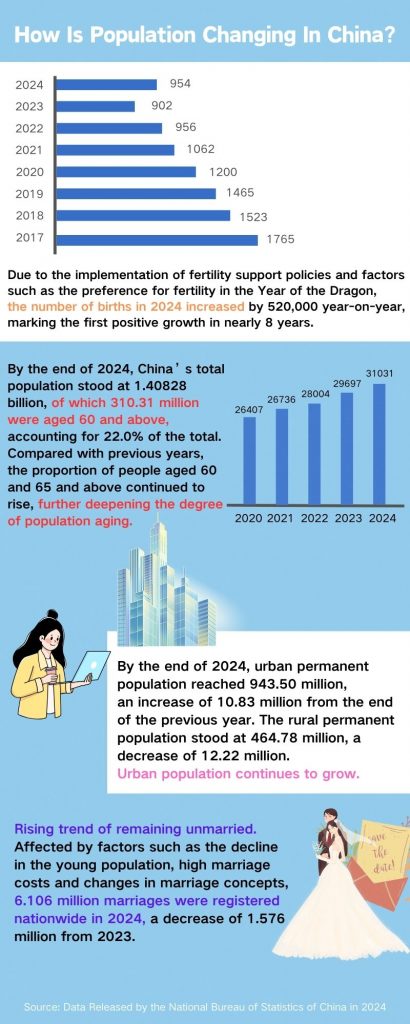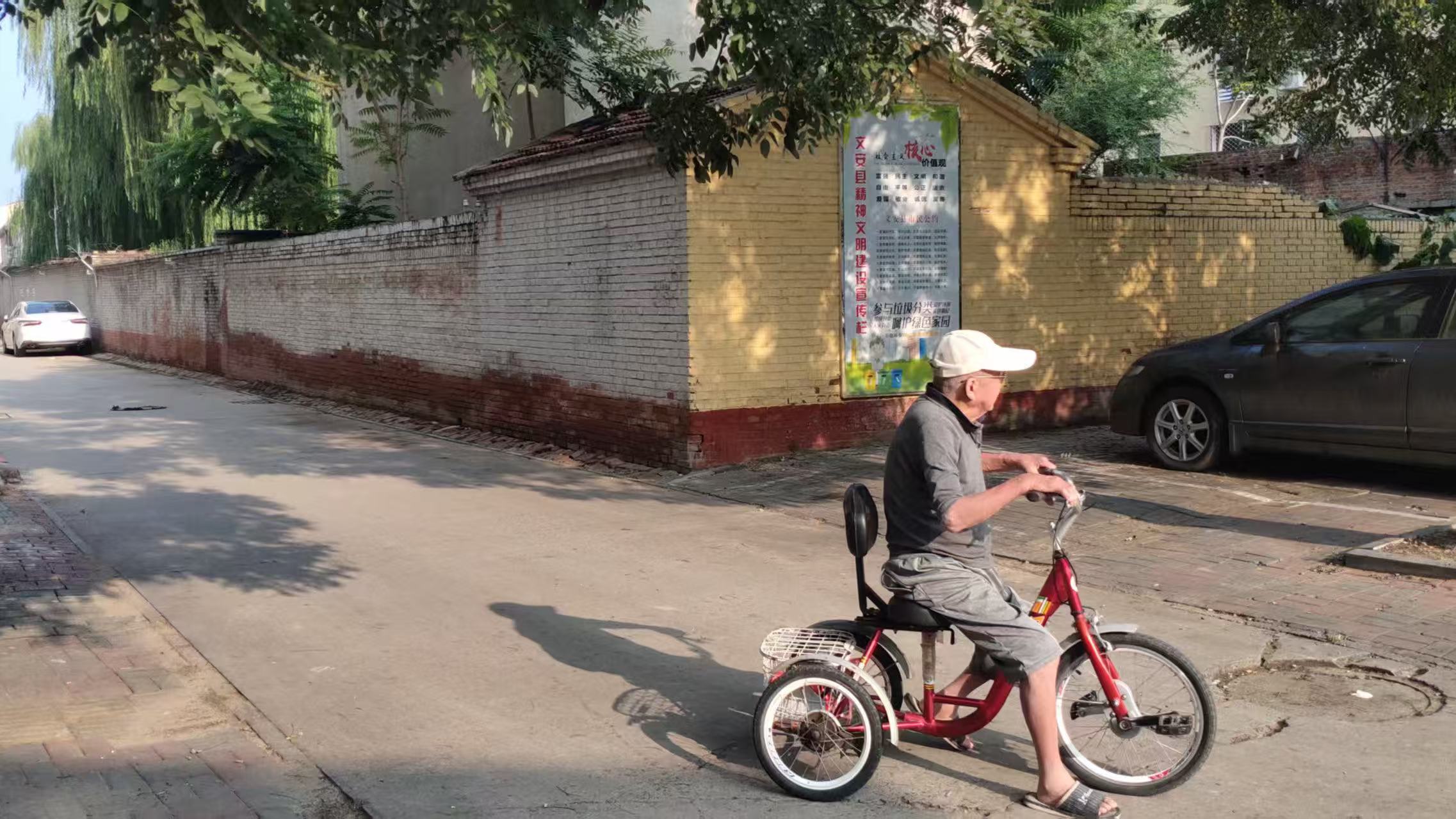As younger generations leave rural areas in China for the cities, the traditional family support system is weakening. What challenges do rural older adults face and how do they navigate their later years?
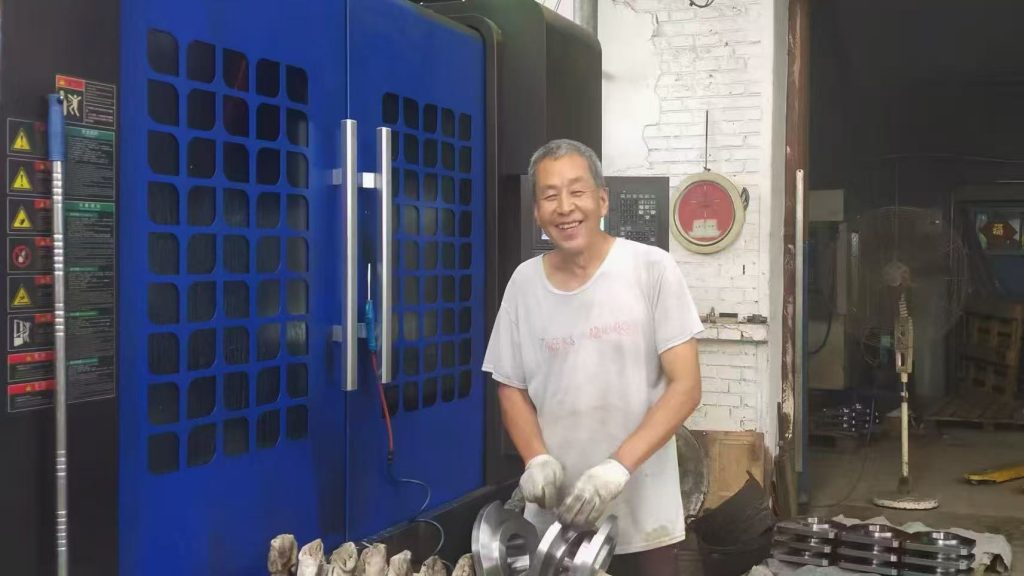
In a small rural workshop, Han Mengle puts on protective gloves and carefully removes burrs from metal parts before polishing their surfaces. It is the final step of the production line, and he must ensure each piece is smooth and complete to move on to the next stage.
Unlike most of his peers in cities, Han Mengle, 67, from a village in Hebei Province, has not chosen a quiet retirement. He continued working part-time in a small processing plant established by local villagers to help ease his family’s financial burden.
“There is no concept of retirement in the village. As long as people do not have some serious ills, they keep working,” says Mengle, after his two sons left home, he has been living with his wife in the village, “The factory is in the village, close to my home. If the villagers have orders, they ask me to help.”
Mengle is among the growing number of left-behind elderly in rural China.With rapid urbanization and industrialization, cities offer more job opportunities as well as better education and healthcare. This has drawn large numbers of young people away from the countryside and into the cities. At the same time, many elderly residents are used to rural life and feel a strong attachment to their homes and land, so they remain in rural areas.
This demographic shift has sharply raised the share of elderly people in rural China, where aging is more severe than in cities. According to the Seventh National Census of China, as of 2020, there were 120 million people aged 60 and above in the countryside, accounting for 23.8% of the rural population. That figure was nearly 8% higher than in urban areas.
“My sons are busy with work and taking care of their own children, so they rarely come home. Sometimes they video call me, and order daily necessities online for me, such as cooking oil, milk and health supplements. ” Mengle says. “Most of the time, it’s just my wife and me at home.”
Li Yu, a researcher in Anhui who has conducted field studies in the countryside, says the outflow of labor is a major factor behind the difficulties of elderly care in the countryside. “Most young people work away from home and may only see their parents during the Spring Festival. Older parents mainly rely on themselves in old age. Even after reaching retirement age, many continue to work or farm, not only for economic reasons but also because labor gives them a sense of social value,” Yu says .
Population aging and large-scale migration have left more elderly villagers on their own, weakening the traditional family role in elder care. With children working far away, financial and emotional support is limited. Many seniors now live alone or only with a spouse, relying mainly on themselves in daily life. Insufficient pension benefits are one of the main challenges for elderly people in rural China.
According to the National Bureau of Statistics of China, the average rural pension was 234 yuan in 2024, while many elderly people received just over 100 yuan (less than £20) a month. By contrast, the average monthly pension for urban employees was around 3,500 yuan (about £380). The gap between urban and rural pensions is striking.
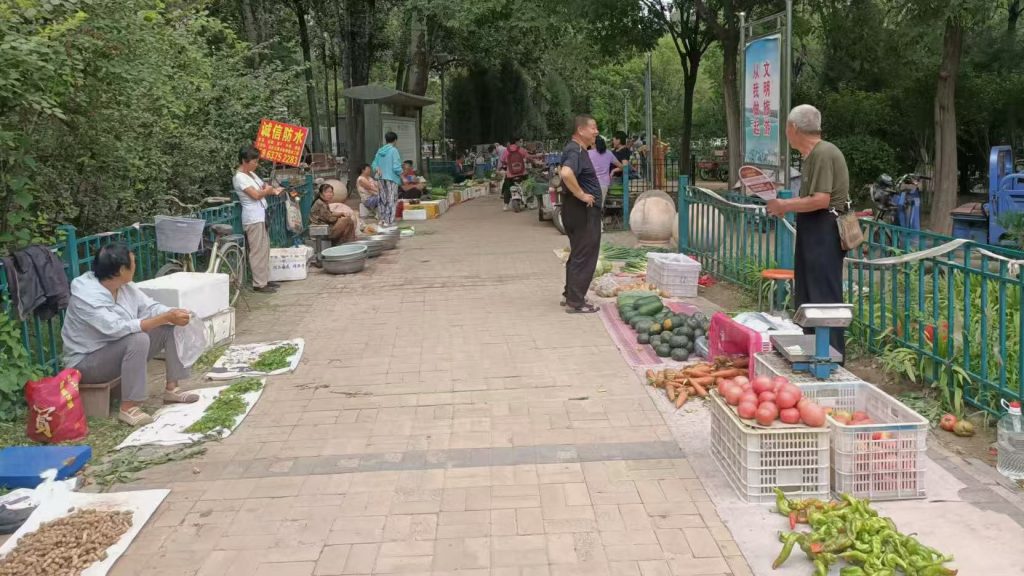
This gap stems from the divided dual social security system between urban and rural areas. The urban employees’ pension scheme was established in 1951, funded jointly by employers and workers. The contributions tied to wages and based on relatively high income levels, the scheme provides stronger benefits.
By contrast, the rural residents’ basic pension system was launched in 2009 , with participants choosing their own contribution levels. Due to unstable income or low wages, rural residents tend to choose the lowest tier. As a result, personal contributions are small, and the system mainly relies on government subsidies.
As a native of the countryside, Mengle farmed several acres of land for more than a decade to support his family. To increase his income, he taught himself carpentry and rented a small storefront, offering architectural decoration services for villagers building new houses. After years of hard work, Mengle used his savings to help his two sons buy bungalow, get married and settle down in the city.
However, because Mengle had mainly worked in farming and informal jobs without a formal employer in his younger years, he could only participate the rural residents’ pension scheme. His monthly pension is currently around 200 yuan (about £20) . It is hardly enough to cover daily living needs, so even after reaching retirement age, he continues working to ease the financial burden.
Mengle not only supports himself but also looks after his wife. “My wife has suffered from cerebral thrombosis for 15 years. She can’t work and needs someone to care for her. I have been looking after her at home,” he says.
Caring for a disabled people is much more demanding than imagined. “I usually make milk and eggs for her breakfast. For lunch and dinner, I prepare softer food or blend it into liquid form,” Mengle says . It is difficult to express their feelings accurately for disabled people. Mengle often has to guess where she feels discomfort. He turns her over every night and has not had a full night’s sleep for a long time.
Proper care can extend the lives of elderly people by several years or even decades. But it also places enormous pressure on spouses and families. Research by Professor Wang Rui at Renmin University of China shows that caring for a spouse has negative impacts on the mental health of middle-aged and older caregivers. Especially in rural areas, healthcare and recreational services are limited. Caregivers often face even greater mental strain.
Mengle says that although caring for his wife is difficult, he will not give up. “Our relationship was simple, not based on money or conditions,” he says. “She stayed with me through the hardest times, and I will keep looking after her as time goes.”
Families like that of Mengle and his wife are becoming increasingly common in rural China. With traditional family support declining, many elderly people must face aging and illness on their own, relying mainly on themselves in their later years.
However, as many older adults grow older and lose the strength to work, living independently is difficult. They must turn to their children for daily support.
Zhou Fuming, 88, farmed the land in the countryside to raise seven children. When they grew up and moved to cities to build their own families, Fuming and his wife stayed behind in the village together.
“Although they are already in their eighties, they can still look after themselves. They can cook and use the washing machine for laundry.” says Zhou Zhiyu, 55, Fuming’s son.
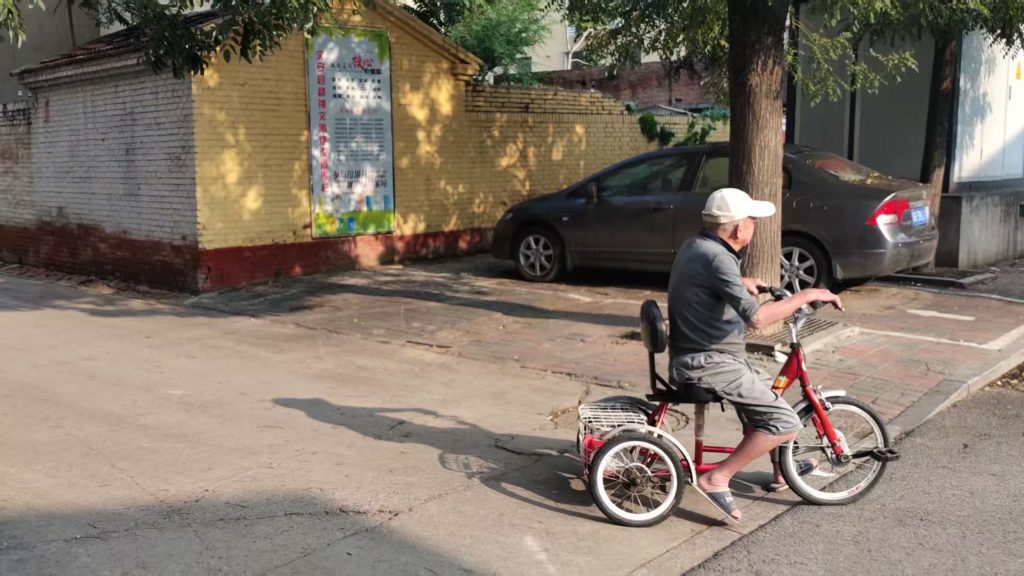
However, two years ago, Fuming’s wife died of illness. “My father didn’t express too much sadness, but I could feel that he missed my mother very much. He didn’t like to talk much during that period and had little appetite.”
Zhiyu says that when his mother was alive, he and his father were very close. After her passing away, his father has to go to his home for several month every year, and sometimes went to his sisters home for other month, although he used to live in countryside, he needs children to tend to his daily life, but he had to cope with loneliness on his own
According to Seventh National Population Census in China, as of 2020, the elderly population reached 264 million, including 50 million widowed elderly people, who accounted for 18.9 percent of the total. The proportion of widowed or single elderly people living alone in rural areas is significantly higher than in urban areas.
According to a study by Zeng Zhi and his colleagues at Hubei Medical College , spousal companionship and support can improve the quality of life for older adults. As people enter advanced old age, their mobility becomes limited and their social circles shrink, so their spouse’s support becomes more important.
Elderly couples often support each other in daily life. But when one partner dies, the surviving spouse loses companionship, comfort and care, which brings loneliness and practical difficulties. Widowhood is a major source of psychosocial stress and can cause serious mental health challenges for older adults.
Zhiyu was worried that his father might feel lonely, so he brought his father to live in the town together. One day, Zhiyu noticed his father usually scratching his back, and then he discovered that his father had a lot of rashes.
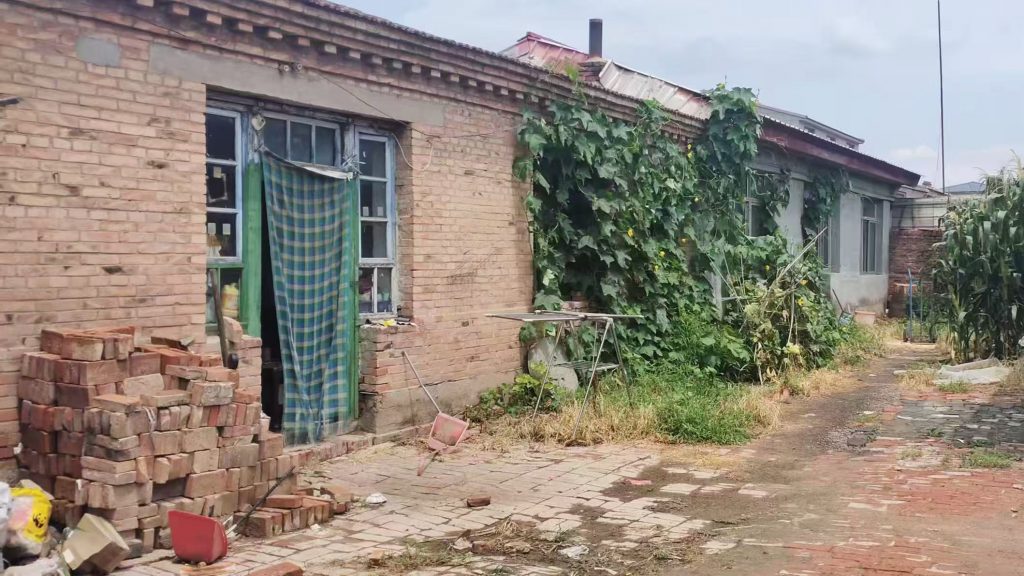
“At first my father didn’t want to tell me. When I finally took him to the hospital, the doctor told us his weak immune system caused the allergic reaction,” Zhiyu says, “The allergy was serious at that time. It caused large red rashes. He need to stay in the hospital for more than a week. It took a long time to recover after coming home. If my father had taken medicine earlier, it might not have been so bad.”
As people grow older, their ability to care for themselves gradually declines, and the need for support increases. In traditional rural families, older adults are often reluctant to talk about their illnesses. with limited health awareness, they may see physical discomfort as a normal part of aging. Besides, they worry about becoming a financial burden because of high medical costs and not willing to trouble their children.
“I have a lot of work and often need to go out. Most of the time, my father is on his own,” Zhiyu says. “Sometimes he watches TV, sometimes he just sits outside staring into space. The happiest thing for him is to chat with acquaintances together.”
For older adults in rural areas, spiritual emptiness is also a prominent issue. Rural life is simple, with little entertainment and narrow social circles. Many older adults spend much of their time alone. At the same time, they face high economic dependence and a lack of community services. These factors make them more likely to fall into a vicious cycle of lowered self-esteem.
Emptiness is common among the elderly, especially for those whose children work away from home, according to Yu. “I have visited many rural residents’ homes, and I saw quite a few older adults like sitting in front of the TV watching soap operas. Their hearing is weak and they also may not even follow the plot, but for them, the sound and pictures from the TV provide a sense of companionship,” Yu says.
As urbanization continues, the aging of the rural population will inevitably intensify. Economic support, emotional comfort and daily care are increasingly important for improving the quality of life of elderly people in rural areas. Improving the social security system is crucial for rural development and for the well-being of elderly people in the countryside.
Mengle remains optimistic about life. “I quite like my current situation. Although it can be tiring at times, at least it doesn’t feel empty,” he says.
As people grow older, they need to adapt to the decline of physical functions and changes in social relationships, while also learning to regain balance in body and feelings during old age.
“Older adults in the past were very frugal, and they don’t really understand some of the new things today. If we can spend more time with our parents, they will feel more at ease, ” Zhiyu says.
